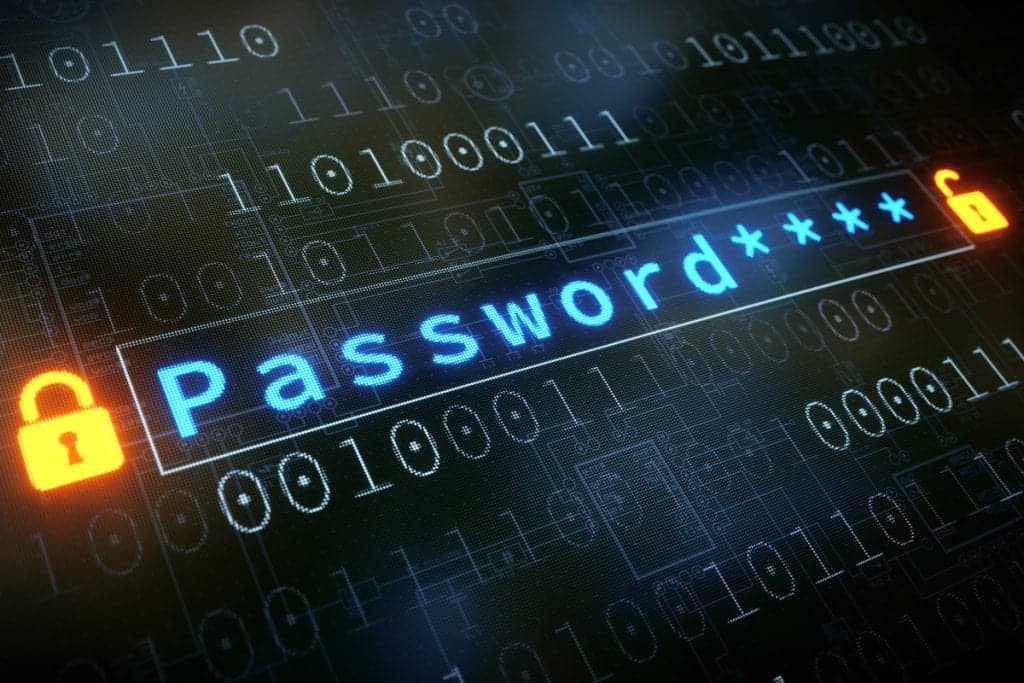Cybersecurity is no longer an optional add-on for businesses—it’s necessary with the rise of digital transformation, including best practices for your business. Companies of all sizes are vulnerable to cyberattacks that can cripple operations, leak sensitive personal information, and damage reputations.
To protect your business from these threats, be proactive about cybersecurity. This guide covers the top 10 cybersecurity tips every business should use to build a solid defense against cyber threats.
Basic cybersecurity tips for businesses
Below, we’ll explore the steps and tips for employees to enhance their cybersecurity awareness, protect sensitive data, and maintain a secure digital environment.
Invest in your cybersecurity
Your cybersecurity budget should match your business size.
Budgeting for cybersecurity can prevent costly breaches, but this investment requires installing new security tools and hiring IT professionals.
Your business needs to invest in cybercrime prevention now and in the future. Protect your business from cyber risk now rather than later.
Secure your network from malicious attacks today with our top-of-the-range cybersecurity solutions
Password hygiene
Maintaining strong password hygiene is one of the simplest yet most effective cybersecurity practices. Users with weak passwords are often hacked.
Make sure your employees use strong passwords and vary them across accounts. Multi-factor authentication (MFA) strengthens security, making it harder for hackers to sign in even if they crack a password.
Phishing awareness
Phishing attacks are one of the worst online threats to businesses. Phishing emails often impersonate real companies to trick employees into visiting dangerous websites or opening attachments.
Employees can be trained to spot phishing emails to prevent this. Phishing simulations should be conducted regularly to keep your team up-to-date on cyber criminals’ latest tricks and protect your data.
One of the best cybersecurity tips is to “think before you click.” This approach reduces the likelihood of phishing success.
Software updates
Hackers like old software because it contains useful information to help get into the system. Hackers use old software security holes to break in.
Always using the latest software is a simple way to protect your computer. Automated software updates protect your business from the latest security holes without human oversight.
Network monitoring
Constant network monitoring is vital to detect unusual activities that indicate a virus or a cyberattack is in progress. It helps identify unusual activity that could indicate a breach.
Implementing real-time monitoring tools lets your IT team detect suspicious behaviors, such as unauthorized access attempts or data transfers. Early detection through active monitoring can help mitigate damage and prevent full-scale breaches.
Firewalls and VPNs
Setting up firewalls and using a password manager can enhance your data security. Virtual Private Networks (VPNs), regular updates, and employee training are critical to safeguarding your network against security risks.
Firewalls act as a barrier between your internal systems and external threats, filtering out potentially harmful traffic, including that from cyber criminals.
VPNs encrypt your internet connection, making it harder for hackers to intercept data transmitted over public or unsecured wi-fi networks.
Email security best practices
Email is often a weak point in a company’s cybersecurity defense, making it essential to follow best practices. This defense includes using email filters to detect spam, scanning attachments for malware, and encrypting sensitive email communications.
Additionally, as part of your security awareness initiatives, train employees to verify the sender before opening attachments or clicking on email links, especially if they were not expecting the communication.
We highly advise that you invest in security upgrades to ensure your business systems and information are safe. Contact us today to get started.
Advanced cybersecurity tips
These advanced cybersecurity strategies can protect your business from all types of cyber threats, protect sensitive data, and ensure smooth operation:
Securing mobile devices and BYOD policies
With the rise of remote work and the use of personal devices in business operations, awareness of security risks has become more important than ever. Securing mobile devices has become a significant concern.
Implement a “bring your device (BYOD)” policy that outlines security requirements for personal devices accessing company networks. In addition, use mobile device management (MDM) software to monitor and secure these devices, ensuring they follow the company’s cybersecurity protocols.
Role-based access control (RBAC)
Restricting access to sensitive data and systems based on job roles is a key cybersecurity practice known as role-based access control. By limiting access to only those employees who need it, you reduce the risk of unauthorized access.
For instance, only finance department personnel should have access to sensitive financial records, while IT staff should manage system settings. This approach ensures that the attacker’s access is limited even if an employee’s account is compromised.
Additional reading: cyber security risk assessment
Use encryption for sensitive data
Data encryption ensures that even if sensitive information is intercepted, it cannot be read without the proper decryption key.
Businesses should use encryption for sensitive data both in transit and at rest. Whether it’s financial records, customer data, or confidential company information, encrypting sensitive data protects against breaches.
Network segmentation and multi-layered security
Network segmentation involves dividing your network into smaller, isolated segments so that if one segment is compromised, the attacker cannot easily move to other areas. This tactic limits the potential damage of a cyberattack and helps safeguard sensitive data.
Additionally, implementing a multi-layered security approach ensures that even if one defense mechanism fails, other protections are in place to minimize the impact.
Contact CMIT Solutions today for advanced security solutions for your business
Cybersecurity best practices for businesses
The following cybersecurity best practices help businesses avoid cyberattacks.
Training employees on cybersecurity awareness
Ongoing employee training is one of the most effective ways to enhance your company’s cybersecurity. Human error remains a leading cause of cyber breaches, highlighting the need for ongoing security tips and training.
From recognizing phishing attempts to knowing the importance of password security, regular training sessions will empower your team to be the first line of defense against cyber threats and enhance their overall security awareness.
Using affordable cybersecurity tools
While cybersecurity tools can be a significant investment, many affordable and highly effective options are available for small and medium-sized businesses prioritizing data security.
Solutions like antivirus software, firewalls, and encryption tools provide essential protection without breaking the bank. Leveraging these tools ensures businesses with smaller budgets can maintain robust security defenses.
Securing third-party relationships
Many businesses rely on third-party vendors and partners for various services, but these relationships can also introduce cybersecurity risks.
Establishing secure third-party relationships is essential to mitigate security risks associated with cyber criminals by ensuring that your partners follow strict cybersecurity protocols.
Conduct regular audits of their security practices and ensure they comply with industry standards to avoid exposing your business to unnecessary risks.
Additional reading: why is cloud security important
Why is cybersecurity important for businesses?
The relevance of cybersecurity solutions is growing by the day, and it’s no longer an issue that only affects large corporations. Cyber attacks can impact businesses of all sizes, leading to financial losses, legal issues, and irreparable damage to your reputation.
Small businesses, particularly, are attractive targets for cyber criminals because they often lack the resources to invest in advanced security measures. By implementing these cybersecurity tips, businesses can reduce attack vulnerability and protect their most valuable assets.
Secure your business with these tips. Let CMIT Solutions handle the rest
Implementing the cybersecurity tips listed above can significantly reduce your company’s vulnerability to cyber attacks. Maintaining a successful cybersecurity strategy is difficult. CMIT Solutions can help.
Our cybersecurity experts can evaluate your security, identify vulnerabilities, and offer tailored protection for your company. Use these cybersecurity best practices to safeguard your company, and then let CMIT Solutions handle the remainder.
Reach out to our team today for a tailored solution to your business needs
Key takeaways on cybersecurity tips for small businesses
To summarize our cybersecurity tips and best practices:
- Investing in cybersecurity is essential for protecting your business from financial losses and reputational damage caused by a data breach.
- Implementing password hygiene, network monitoring, and phishing awareness are basic steps that provide significant protection.
- Advanced tips like encryption and network segmentation help businesses with more complex needs.
- Training employees and using affordable tools can enhance your cybersecurity posture without breaking the bank.
FAQs
What are the 5 C’s of cybersecurity?
The 5 C’s of cybersecurity refer to Change, Compliance, Cost, Continuity, and Coverage as important factors to consider when implementing best practices for your business. These areas help organizations assess and manage their cybersecurity posture.
What are the 7 pillars of cybersecurity?
The 7 pillars of cybersecurity are Governance, Risk Management, Compliance, Incident Management, Vulnerability Management, Information Security, and Network Security.
Together, these pillars provide a robust framework for protecting an organization from cyber threats and ensuring that cybersecurity practices are comprehensive and effective.
What are the 4 P’s of cybersecurity?
The 4 P’s of cybersecurity are People, Process, Policy, and Product. These represent the essential components of an effective cybersecurity strategy that incorporates training, governance, and the right technology solutions.





